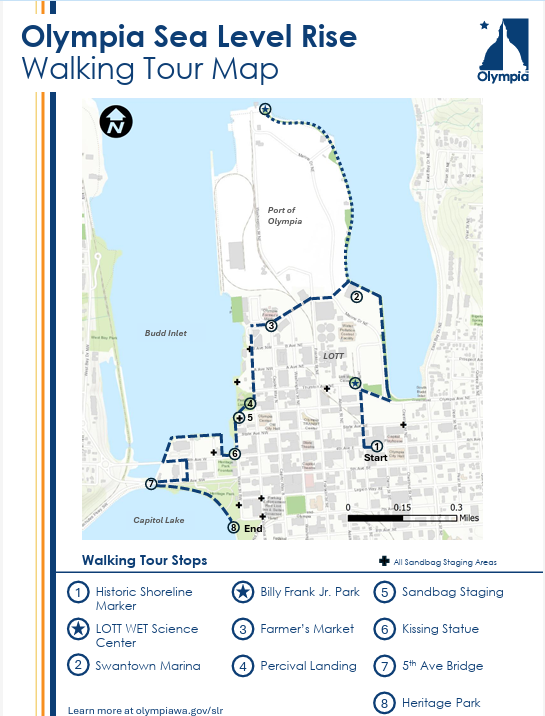Overview
The Port of Olympia is committed to environmental stewardship and is fortunate to operate in a community that shares this core value. From obtaining certifications from organizations such as Green Marine to pursuing on-site renewable energy systems, the Port invests in sustainable development that benefits the environment, the economy and the greater Thurston County community.
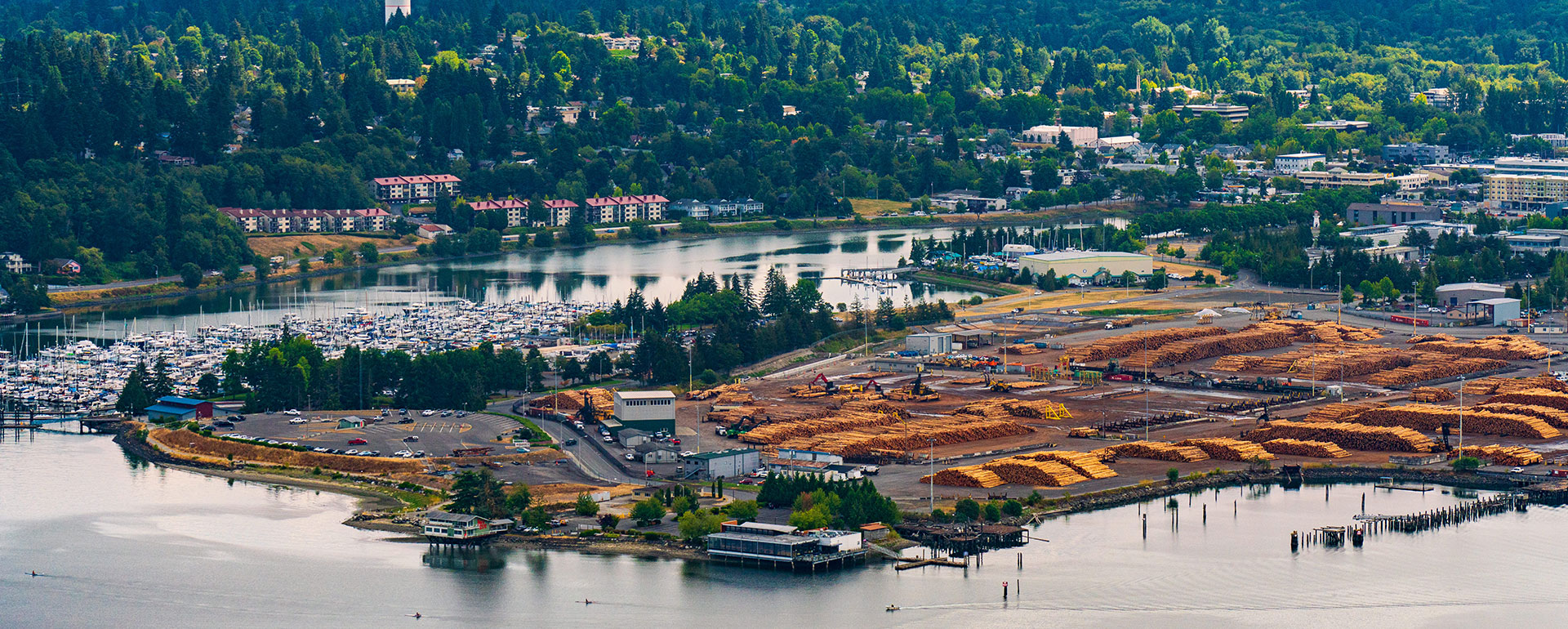
Reducing Our Environmental Footprint with Green Marine
Learn More
Green Marine
The Port joined Green Marine in 2016 as one of the first 40 port authorities to participate in the program. There are now over 550 members worldwide.
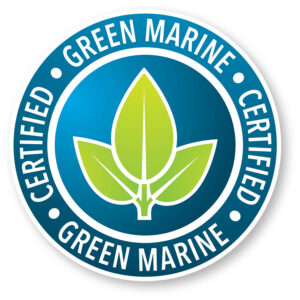 Green Marine is a voluntary third-party certification program that requires participating port authorities to establish baseline performance indicators in multiple facets of Marine Terminal operations and then demonstrate tangible year-over-year improvements to maintain certification. The certification system evaluates six distinct operational areas, including:
Green Marine is a voluntary third-party certification program that requires participating port authorities to establish baseline performance indicators in multiple facets of Marine Terminal operations and then demonstrate tangible year-over-year improvements to maintain certification. The certification system evaluates six distinct operational areas, including:
- Spill Prevention and Stormwater Management
- Aquatic Ecosystems
- Dry Bulk Handling and Storage
- Community Impacts
- Community Relations
- Environmental Leadership
- Waste Management
- Underwater Noise
- Air Emissions – Greenhouse Gases and Air Pollutants
Clean Marina Washington
The Port of Olympia Swantown Marina and Boatworks facilities participate in Clean Marina Washington, a voluntary certification program funded by a grant from the Department of Ecology that requires marinas to assess their operations and make improvements that protect the environment.
The Port received a Clean Marina Leadership Award for establishing exceptional environmental practices.
Learn More
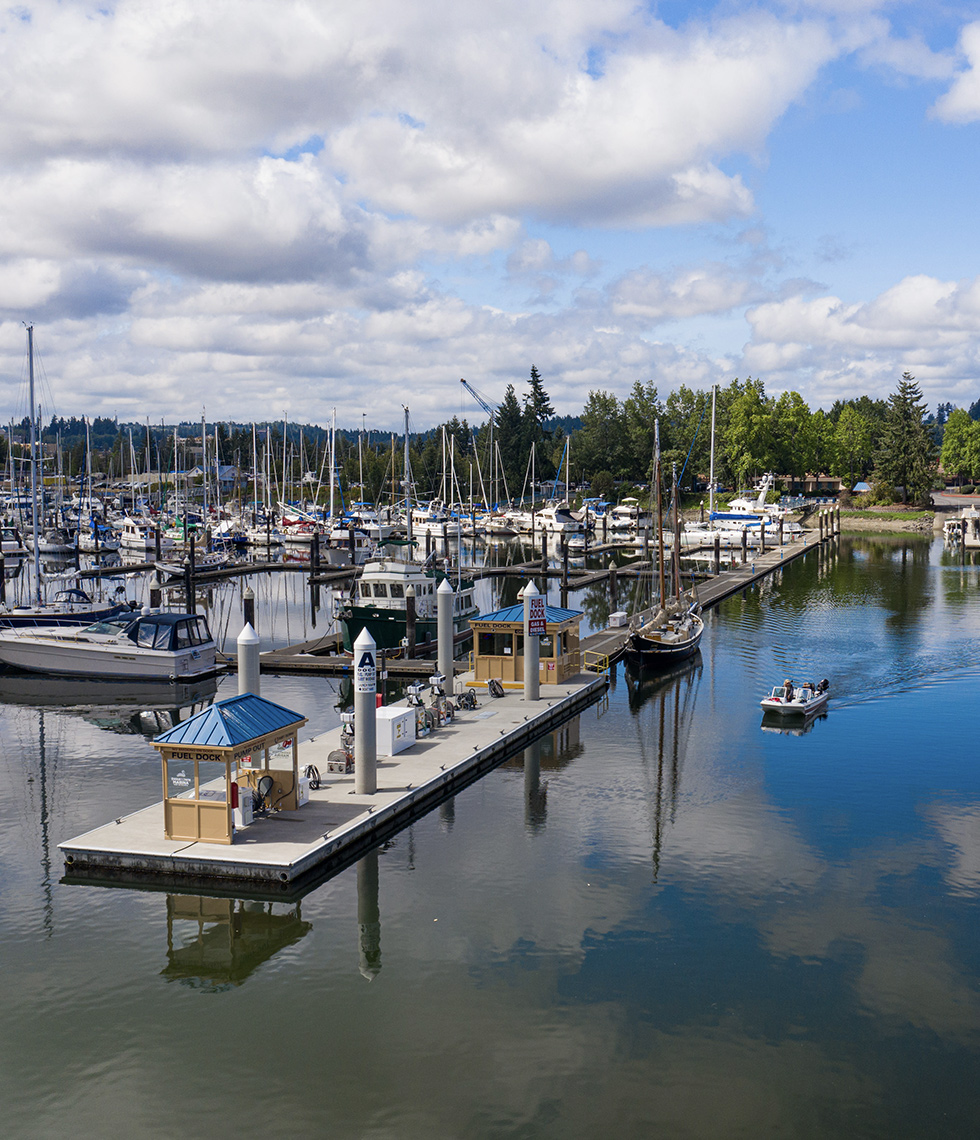
Renewable Energy
The Port has been investing in renewable energy since 2011, when we installed solar panels at our marine terminal facility and solar lights at our Cleanwater redevelopment in Tumwater. As solar energy systems improve, we will continue to explore innovative ways to update or implement new on-site renewable energy practices into Port programs and properties.
Solar Feasibility and Fleet Decarbonation Studies
Funded by a Clean Energy Fund grant received in partnership with the Nisqually Indian Tribe, in the first half of 2025, the Port of Olympia conducted a Solar Feasibility Study and Fleet Decarbonization Analysis.
The Port worked with Sphere Solar to assess the feasibility of installing solar panels at locations on the Port Peninsula and at the Airport. This analysis included an assessment of current electrical configuration and ability to integrate solar power into the system or to charge batteries for standby power. The assessment also included a general assessment of the structural capacity of buildings to support added weight of solar infrastructure.
The Port is also working with Pacific Mobility Group to assess the Port’s rolling stock, such as cars, trucks, forklifts, and tractors, to determine how this inventory can be replaced over time with electric vehicles or other vehicles that burn less fuel and therefore have a smaller carbon footprint. This will help inform the Port’s fleet management program and facilitate a vehicle succession plan that saves money and has less impact on the environment.
These efforts are funded by the Clean Energy Fund, Electrification of the Transportation System (CEF-ETS) grant program. The Port thanks the Department of Commerce for administering this grant program and the Nisqually Indian Tribe for including the Port as a partner.
Climate Change
Greenhouse Gas (GHG) Assessment
As part of its continuing focus on sustainability, the Port of Olympia completed a Greenhouse Gas (GHG) Emissions Report in 2017 of its airport operations. Based on report findings and Washington State Department of Ecology protocol, the Port has a relatively small carbon footprint, generating approximately only 583 metric tons of Scope 1 carbon dioxide (MT CO2e) per year, an amount equivalent to approximately 23 American families. Under the State Agencies Climate Leadership Act, Washington State requires annual monitoring and reporting for entities generating in excess of 10,000 MT CO2e per year.
While our carbon footprint is relatively small and annual reporting is not required, we continually strive to identify opportunities for reduction.
Learn More
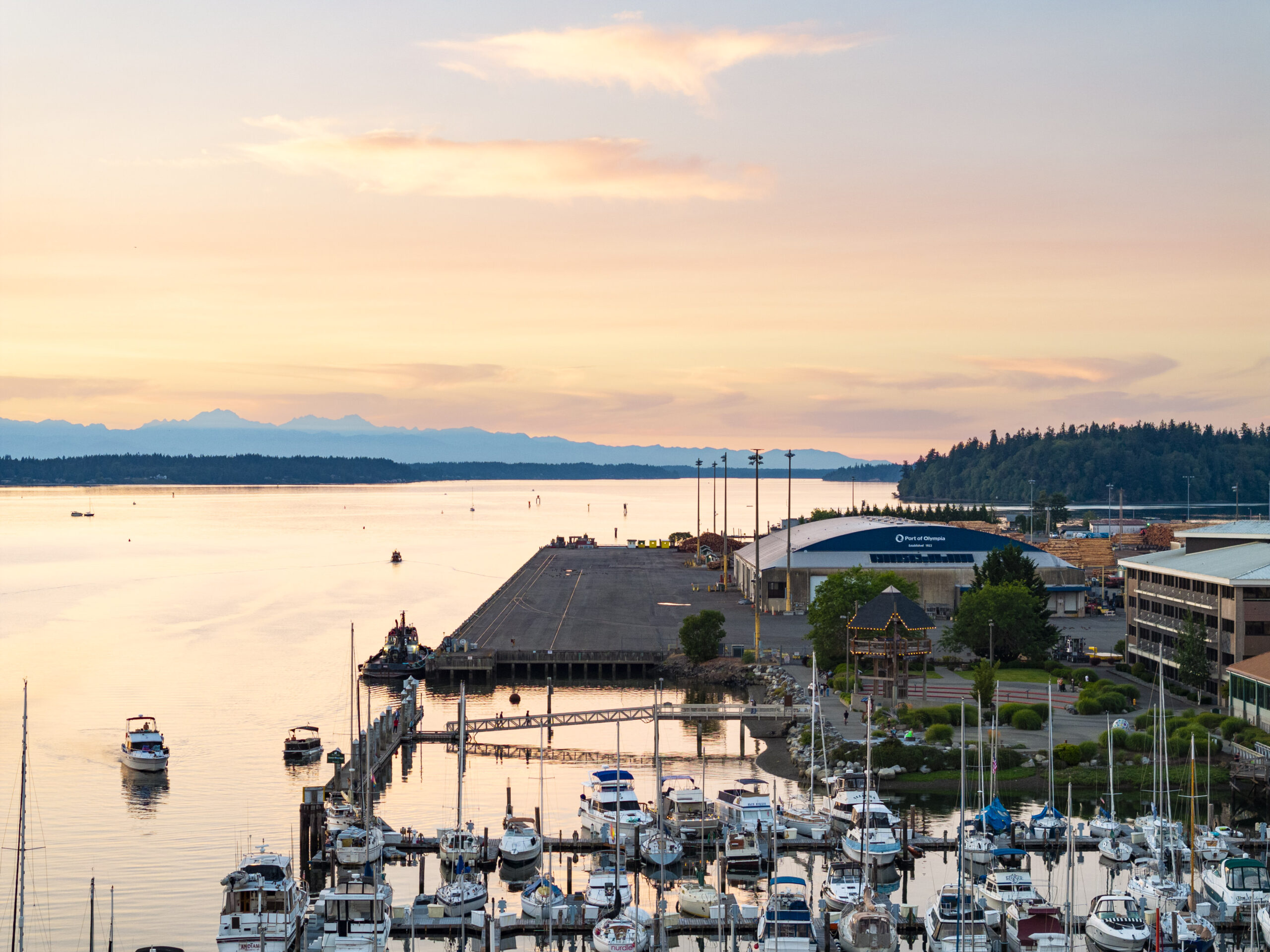
Sea Level Rise
Current trends in sea rise and weather patterns are concerning. Sea level rise will increase the likelihood of flooding to downtown Olympia and the Port Peninsula. Without action, protecting Olympia’s downtown core and businesses will be challenging.
The City of Olympia, LOTT Clean Water Alliance and the Port of Olympia, under the guidance of the consulting firm AECOM Technical Services, collaborated to develop the Olympia Sea Level Rise Response Plan in March 2019.
The coalition is currently working on the 2025 work plan which includes developing guidelines to incorporate sea level rise considerations into capital planning and pursuing funding for identified projects.
Visit the Sea Level Rise website to learn more about our ongoing efforts and to view our current work plan.
All documents related to this effort can be found on the City of Olympia’s Sea Level Rise website, where the public can also sign up to receive updates on their Climate Change Response.
Learn More
Light & Noise Pollution
Marine Terminal Lighting
The Port utilizes energy-efficient lighting in its cargo yard and warehouse, and motion detectors to ensure that they are off during the day when not needed.
White Sound Backup Alarms
The Port of Olympia was the first West Coast port to convert from back-up beepers on marine terminal equipment to Brigade “white sound” reverse alarms. These state-of-the-art alarms have a static electronic sound that alerts workers in the immediate area, but do not travel at the same distance and intensity as traditional back-up beepers, protecting workers without disturbing neighboring businesses and residents.
Noise Pollution Reduction
Aircraft Noise Abatement
We have established voluntary noise abatement procedures for both aircraft at the Port of Olympia Regional Airport and seaplanes at Swantown Marina.
While it is understood that air traffic control instructions and safety considerations may at times require deviation from the suggested procedures, pilots are asked to cooperate to the extent possible.

Mazama Pocket Gopher (species Thomomys mazama pugetensis) courtesy of Washington Dept of Fish and Wildlife.
Habitat Conservation Plan
The Bush Prairie Habitat Conservation Plan is being developed to balance growth and the preservation of endangered species within the City of Tumwater and its urban growth area, which includes the Olympia Regional Airport properties. The City of Tumwater and the Port of Olympia are jointly developing the plan through an Interlocal Agreement that will provide for the long-term preservation and management of three species: the Olympia pocket gopher, streaked horned lark, and Oregon spotted frog.
Protection of habitat for these species will mitigate for the impacts of ongoing development, maintenance, and other activities performed by the City of Tumwater and the Port of Olympia, which have the potential to cause harm.
The affected species will benefit from assured, long-term habitat protection. The residents of Thurston County will benefit from a federal permit authorizing impacts to these species at the Olympia Regional Airport, which will facilitate planned development and maintenance work. The Habitat Conservation Plan is expected to reduce the costs and time that would otherwise be needed for individual landowners to comply with the provisions of the Endangered Species Act.

